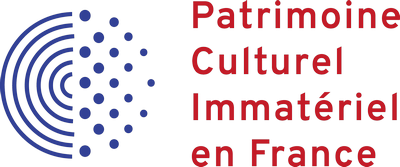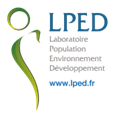Context and goal
 In December 2023, the Intergovernmental Committee for the Safeguarding of Intangible Cultural Heritage evaluated favorably the nomination proposed by seven European States Parties (Austria, Belgium, Germany, Italy, Luxembourg, Netherlands and Switzerland) for inscription of their traditional irrigation systems on the Representative List of the Intangible Cultural Heritage of Humanity (Convention 2003). In June 2023, the French Ministry of Culture encouraged the national traditional irrigation communities to prepare a request for extension to join the communities from the original nomination. Four other countries (Greece, Maroc, Portugal and Spain) have joined France to edit and submit the required multinational nomination file in March 2026.
In December 2023, the Intergovernmental Committee for the Safeguarding of Intangible Cultural Heritage evaluated favorably the nomination proposed by seven European States Parties (Austria, Belgium, Germany, Italy, Luxembourg, Netherlands and Switzerland) for inscription of their traditional irrigation systems on the Representative List of the Intangible Cultural Heritage of Humanity (Convention 2003). In June 2023, the French Ministry of Culture encouraged the national traditional irrigation communities to prepare a request for extension to join the communities from the original nomination. Four other countries (Greece, Maroc, Portugal and Spain) have joined France to edit and submit the required multinational nomination file in March 2026.
History has demonstrated that prior to the twenty-first century Mediterranean local communities have made use of these widespread traditional irrigation schemes to face past challenges such as climate change and rise in the population as well as to build the praised current Mediterranean landscapes. However, nowadays, the communities using traditional irrigation schemes are diminishing as the use of the former has been drastically and widely condemned.
 If one of the mandatory criteria to be included on the Representative List of Intangible Cultural Heritage is to be “constantly recreated by communities and groups in response to their environment, their interaction with nature and their history .…” (article 2 - Convention 2003) and if the Committee has evaluated favorably this criteria, how does it come that the traditional irrigation struggle to find their place and function in the twenty-first century? Did all the benefits they carried disappear? Do they contribute in no way to the Mediterranean landscape heritage, biodiversity, agriculture, or the communities’ quality of life? I
If one of the mandatory criteria to be included on the Representative List of Intangible Cultural Heritage is to be “constantly recreated by communities and groups in response to their environment, their interaction with nature and their history .…” (article 2 - Convention 2003) and if the Committee has evaluated favorably this criteria, how does it come that the traditional irrigation struggle to find their place and function in the twenty-first century? Did all the benefits they carried disappear? Do they contribute in no way to the Mediterranean landscape heritage, biodiversity, agriculture, or the communities’ quality of life? I
Are traditional irrigation and its practices a tool worth to assist Mediterranean local communities to face both the climate, biodiversity and demographic challenges of this 21st century ? And if yes, in which way ? which means are needed? These are are the core questions we expect researchers and speakers to answer. Patrimonial, ecological but also legal, technical and economical considerations will be sgared in this forum to build a constructive Thinkpad useful to decisions makers and to the stakeholders engaged in developing agriculture, economical, ecological and conservation strategies to promote the resilience of their territory and to protect or restore the richness of the unique Mediterranean landscape heritage.
Programme
 A high quality programme welcomes you for all three days. The symposium is divded into five intense half days. Each one proposes plenary sessions that will incorporate keynote speakers, a serials of paralell sessions with 15 minute oral presentations and a round table event. Further you will be able to attend two workshops which aim is to edit the first charter of good practices. You will also discover the typical traditionnal irrigation in the Vésubie valley and an exhibition on Mediterranean traditional irrigation systems.
A high quality programme welcomes you for all three days. The symposium is divded into five intense half days. Each one proposes plenary sessions that will incorporate keynote speakers, a serials of paralell sessions with 15 minute oral presentations and a round table event. Further you will be able to attend two workshops which aim is to edit the first charter of good practices. You will also discover the typical traditionnal irrigation in the Vésubie valley and an exhibition on Mediterranean traditional irrigation systems.
Session 1 : Monday, April 28, 2025 from 8:30 am to 12:30 : Crossed perceptions : traditionnal irrigation and water challenges
Session 2 : Monday, April 28, 2025 from 1:30 pm to 5:30 pm : Local communities : from a diversity of management models to new environmental oriented schemes
Session 3 : Tuesday, April 29, 2025 from 8:30 am to 12:30 : Discovering the canal system in the upper Nice region : its specificity, what is at stake economically and socially, what might become of it in the future.
Session 4 : Tuesday, April 29, 2025 from 1.30 pm to 6.30 pm : Crossed perspectives Mediterranean - upper Nice region
Session 5 : Wednesday, April 30, 2025 from 9 am to 12.30 am : The weight of knowledge within strategies setting promoting resilience and an actual sustainable development.
Programme can be downloaded here : download Please note that it might still have some modifications. Thank you for your forthcoming.
Steering Committee
- Ftaïta Toufik (anthropologue, maître de conférences, LIRCES EA 3159, Université Côte d’Azur)
- Gili Eric (historien, Association Montagne et Patrimoine AMONT, chercheur associé CMMC EA 1193, Université Côte d’Azur)
- Lacoste Romain, Chef de service territorial de la Vésubie - Parc national du Mercantour
- Neu Mirjam (consultante en patrimoine de l'Eau - référent Alpes maritimes du réseau du patrimoine d’irrigation traditionnelle )
Scientific Committee
- ASPE Chantal - MCF-HDR – Aix Marseille Université - LPED- France
- BATISTA Desiderio - PR – Université Algarve - Portugal
- BELYAZID Samira - PR Université de Moncton - Canada
- BERTINI Marie-Joseph - PR – Université Côte d’Azur – LIRCES UPR 3159 - Nice - France
- CIVANTOS Jose Maria Martin - PR – Université de Grenade - Espagne
- COMINELLI Francesca - MCF - Université Paris1 Panthéon - Sorbonne - Paris - France
- CONDEVAUX Aurélie - MCF - Université Paris1 Panthéon - Sorbonne - Paris - France
- FTAÏTA Toufik - MCF – Université Côte d’Azur – LIRCES UPR 3159 - Nice - France
- FURIÓ Toni - PR- Université de Valence- Espagne
- GILI Éric - PRCE- Docteur en Histoire – CMMC UPR 1193
- JACQUÉ Marie - MCF-HDR – Aix Marseille Université - LPED - France
- KABIRI Lahcen - PR – Université Moulay Ismail - Maroc
- LEGROURI Ahmed - PR – Université Al Akhawayn - Maroc
- MARTINEZ SANMARTIN Luis Pablo - Chef de service Patrimoine – Valence - Espagne
- MEERSMAN Jimmy - MCF - Université de Lorraine I.R.E.N.E.E - - Metz - France
- ROMAGNY Bruno - DR - IRD - France
- RUF Thierry - DR - IRD - France
Registration
Online registration covers exclusive live broadcasting of the plenary sessions, round tables and workshops. In regard to the 15 minutes presentations, you can follow exclusively session 1 - 3 - 6.
Please note that we can only accept online registration.
Key dates for registration
- for any chosen conference the closing date is the eve of the event. Registration is limited to the number of seats available (order of incoming requests)
- for bus reservation back and forth Nice / Saint Martin the closing date is April 25, 202. Availability is limited to 46 seats (order of incoming requests)
- for divinatoure aperitif in Saint Martin on April 29, 2025 the closing date is April 22, 2025
Online registration is open until April, 24 2025.
Online attendance
Plkease note that it is possible to follow in live-streaming the conferences only and the 15 minutes presentation within the session 1 - 3 - 6. If you could please provide us with the email address you will use to connect you in order to allow us to identify your email address and make sure both that it will be accepted and that it will not be hiked. This is the reason why we need you to register before Apeil, 24. We thank you very much for your understanding.
Fees
- Free access prior registration to all conferences, round tables and workshops live or online (*) within the limit of available seats.
- Free access prior registration to the bus transportation within the limit of the 46 available seats.
- Your participation will be requested in the following expenses :
- divinatoure aperitif in Saint Martin - Tuesday, April 29, 2025 (7.30 PM) : 20 €
Payment
Please use one of the following payment modes :
- Bank transfer that must show your name, the event(s) chosen and the respective date(s)
IBAN : FR76 1910 6006 3144 7011 4232 086 - BIC : AGRIFRPP891
- Cheque made out to « Association Arche de Beyla » and sent to the NGO's following address: 580, avenue Charles Boissier - 06450 Saint Martin Vésubie. Please do not forget to join to your cheque your inscription form, otherwise we can neither register you or enter the cheque to your credit
For further questions contact







 A high quality programme welcomes you for all three days. The symposium is divded into five intense half days. Each one proposes plenary sessions that will incorporate keynote speakers, a serials of paralell sessions with 15 minute oral presentations and a round table event. Further you will be able to attend two workshops which aim is to edit the first charter of good practices. You will also discover the typical traditionnal irrigation in the Vésubie valley and an exhibition on Mediterranean traditional irrigation systems.
A high quality programme welcomes you for all three days. The symposium is divded into five intense half days. Each one proposes plenary sessions that will incorporate keynote speakers, a serials of paralell sessions with 15 minute oral presentations and a round table event. Further you will be able to attend two workshops which aim is to edit the first charter of good practices. You will also discover the typical traditionnal irrigation in the Vésubie valley and an exhibition on Mediterranean traditional irrigation systems. 





























